Additional opportunities for the development of Kashkadarya region discussed
On June 20, President Shavkat Mirziyoyev chaired a meeting on the socio-economic development of Kashkadarya region, in Kukdala district.
The Head of State noted that large-scale transformations are underway in the region, and the reforms are impacting people’s lives.
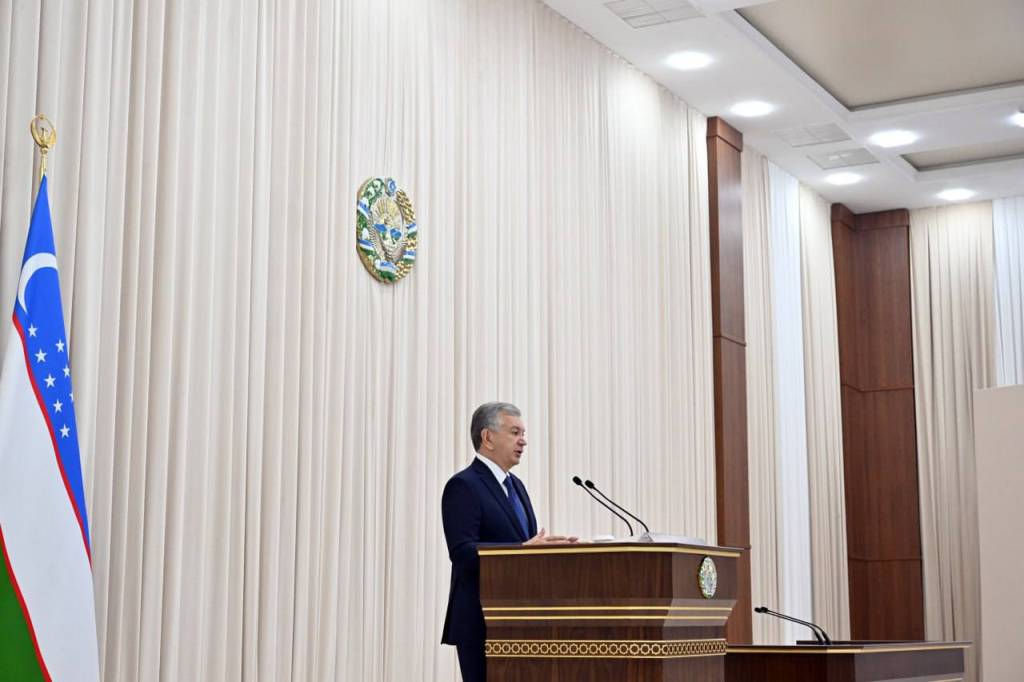
Previously, more than half of the region’s industrial output was concentrated in the oil, gas, and chemical sectors. In recent years, significant progress has been made in electrical engineering, construction materials, textiles, and furniture manufacturing. These industries account for 54 percent of the region’s total industrial output.
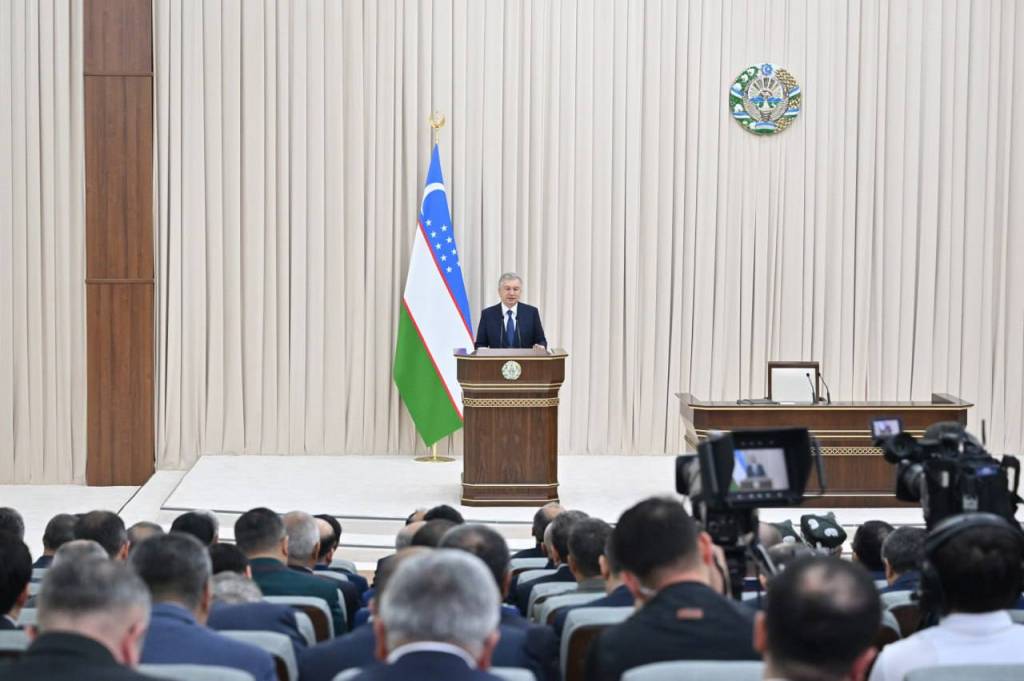
However, development does not stop there – many challenges remain to be addressed. According to estimates, Kashkadarya has an untapped economic potential of at least $15 billion. Even if one-third of this potential is realized, the gross regional product could increase to $10 billion within the next five years.
As is known, reform task forces are being established in districts included in the accelerated development program. It was emphasized that the newly launched projects in Shakhrisabz, Yakkabog, and Kukdala could serve as models for these task forces. A similar task force will now be established in Kashkadarya region as well.
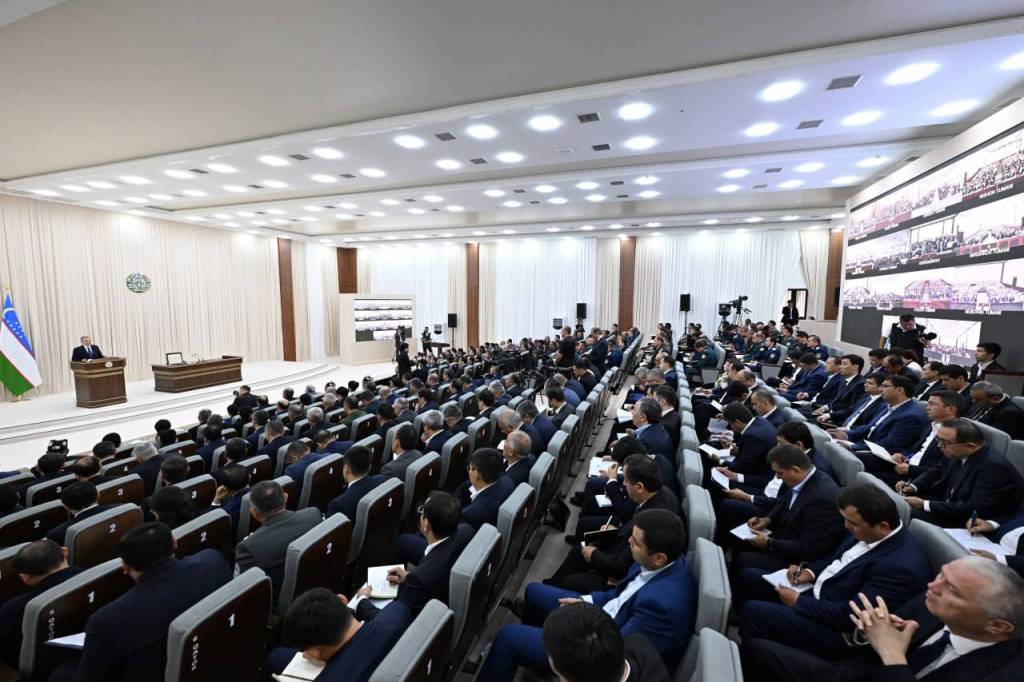
The President outlined additional reserves for the comprehensive development of the region. The most significant potential lies in agricultural land. The region has 515,000 hectares of irrigated land and 45,000 hectares allocated for household plots and orchards – the highest figures in the country.
In addition, the region has 1.3 million hectares of pastures and forest lands. To ensure their practical use, a special company will be established. It will be granted joint-stock company status and provided with appropriate funding, including investment support. The Prime Minister will chair the supervisory board. In the initial stage, the company will be allocated $100 million. These funds and attracted investments will be used over the next two years to carry out laser leveling on at least 200,000 hectares of pasture and forest land and implement water-saving technologies.
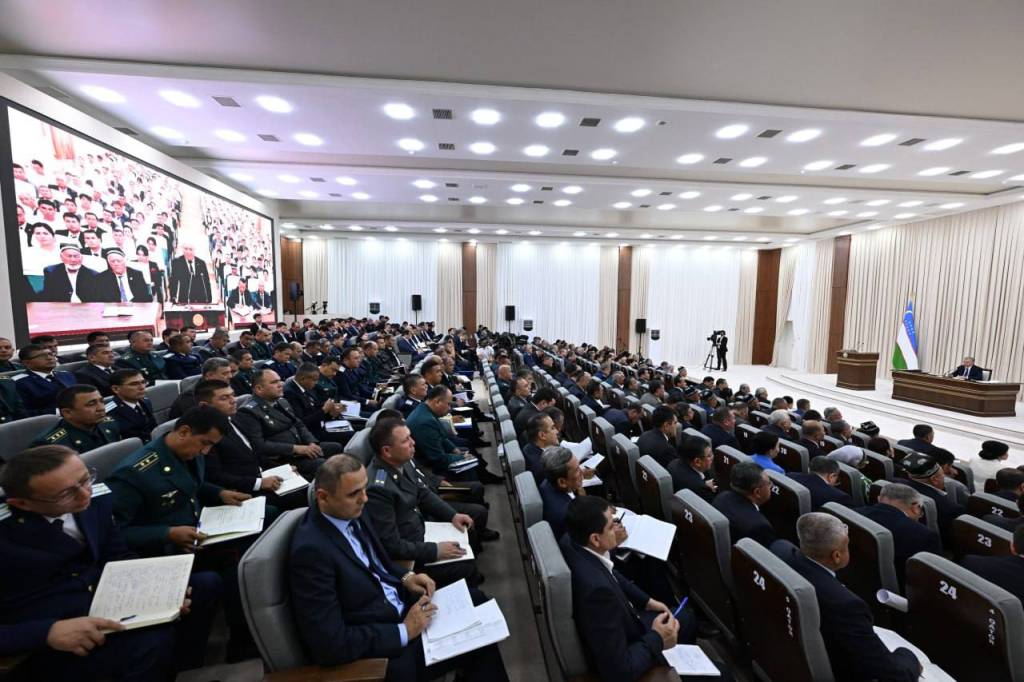
A comprehensive livestock development program will be launched. To support this initiative, the Agriculture Fund will provide concessional loans for up to 12 months at an interest rate of 14 percent. As a result, 127 regional farms will reach full operational capacity. Additional financial support will also be extended to livestock breeders.
Since the beginning of the year, fruit and vegetable exports from the region have doubled, reaching $62 million. Kukdala’s watermelons are particularly well known. A similar export potential exists for tomatoes. In this regard, industrial-scale tomato cultivation will be organized on 6,000 hectares across 13 districts.
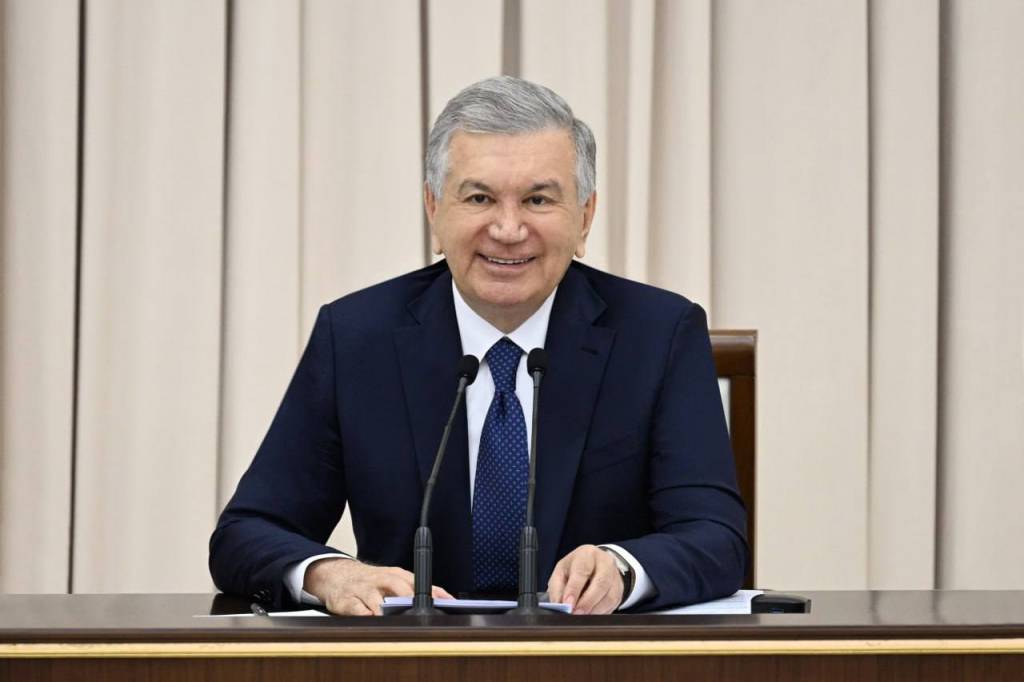
For potato farming, concessional loans will be issued for up to 12 months at an annual interest rate of 10 percent. Importing necessary agricultural machinery will be exempt from customs duties, and 50 percent of the VAT will be reimbursed for purchasing high-reproduction seed varieties.
Employment generation and poverty reduction remain top priorities. Although 284,000 people have been employed since the beginning of the year, the region continues to face a high unemployment rate.
Therefore, this year, the plan in Kashkadarya is to employ 470,000 people, lift 150,000 families out of poverty, and transform Kitab district, along with the cities of Karshi and Shakhrisabz, into “zones free of unemployment and poverty”.
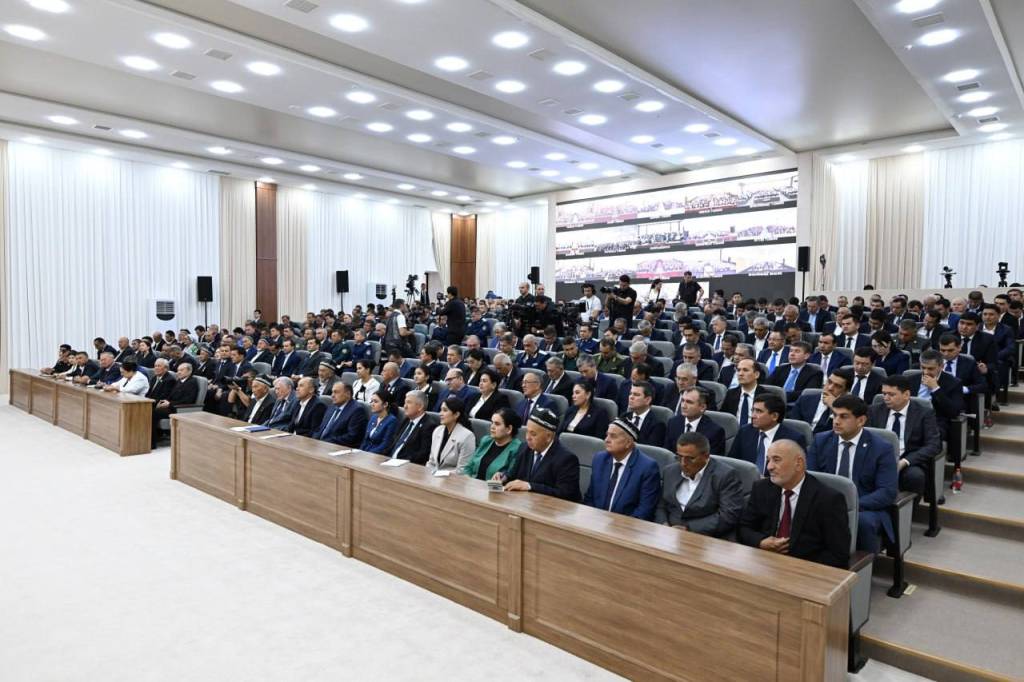
In particular, tourist zones will be established in the scenic areas of Shakhrisabz, Qamashi, Guzar, and Chiroqchi districts. Conditions at the Chiyal market in Kukdala district will be improved for vendors of the traditional dish “yakhna”, contributing to the development of gastronomic tourism. In the Qorasuv mahalla of Shakhrisabz, a blacksmithing craft center will be established.
Unemployed citizens will receive foreign language training and be sent to work in high-income countries. Enterprises designed to create 70,000 jobs will be established based on more than 120 facilities and 400 hectares of land offered through public auctions.
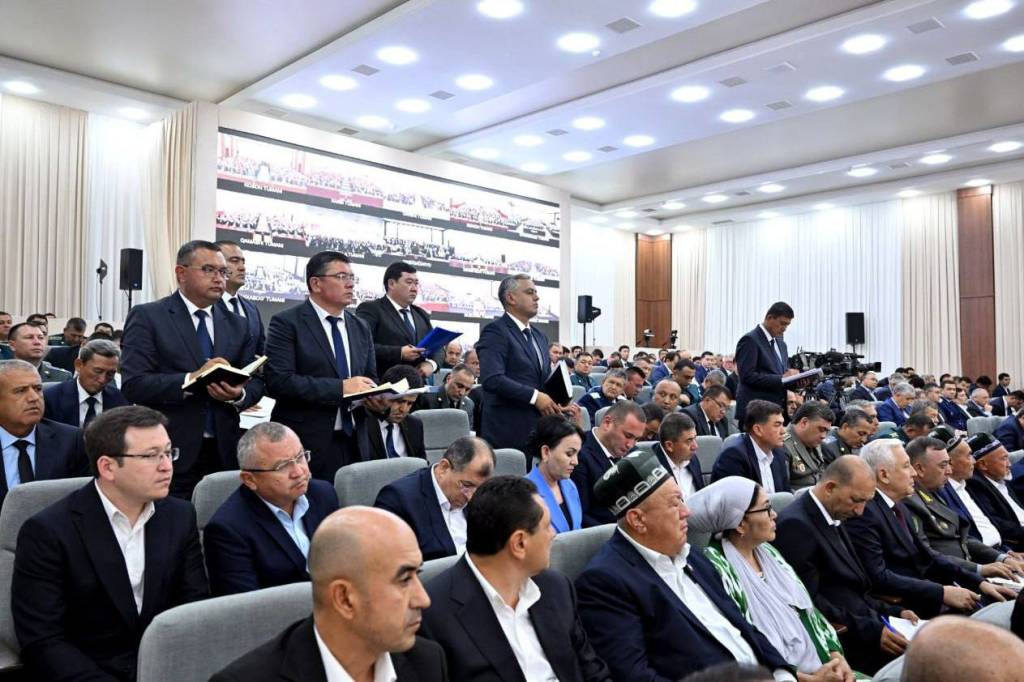
This year, the region is expected to attract $3.5 billion in investment. Over the first five months, investment volumes nearly doubled in the districts of Kasan, Kitab, and Chiroqchi.
It was noted that the region’s mineral resources hold significant potential for attracting investment and producing high-value-added goods. For example, five promising deposits in Kitab contain an estimated 39 tons of gold, while Chiroqchi holds reserves of 10,000 tons of rare earth metals. 16 projects worth $150 million have been prepared in the construction materials sector.
An innovative industrial zone covering 200 hectares will be established around the Mubarek gas processing plant, utilizing existing infrastructure. Five major projects will be implemented within this zone under a cluster system in petrochemicals, electrical engineering, robotics, and construction materials.
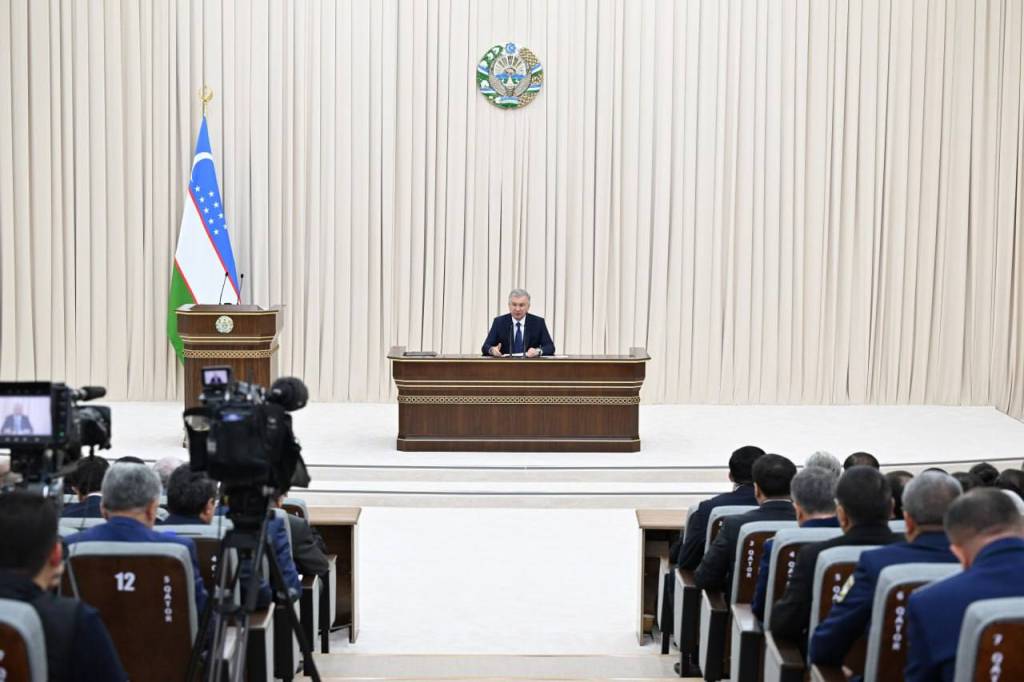
Despite the region’s leading position in cotton production, its share in the national textile industry remains below 10 percent. In this sector, 35 projects worth $400 million are planned. This year, cotton processing is expected to reach 51 percent, and by next year, 100 percent.
The implementation of such large-scale economic projects requires developed infrastructure. The reconstruction of 100 kilometers of the Guzar – Bukhara – Nukus – Beyneu highway, which passes through the region, will triple its transit capacity.
A 106-kilometer section of the Karshi – Shakhrisabz – Kitab highway will also be reconstructed and expanded from two to four lanes. A new 34-kilometer bypass road will be built around the Qamashi and Yakkabog district centers as part of the project. With the participation of the Islamic Development Bank, a 60-kilometer section of the Tashkent – Termez highway passing through the region will also be expanded to four lanes and upgraded with cement-concrete pavement.
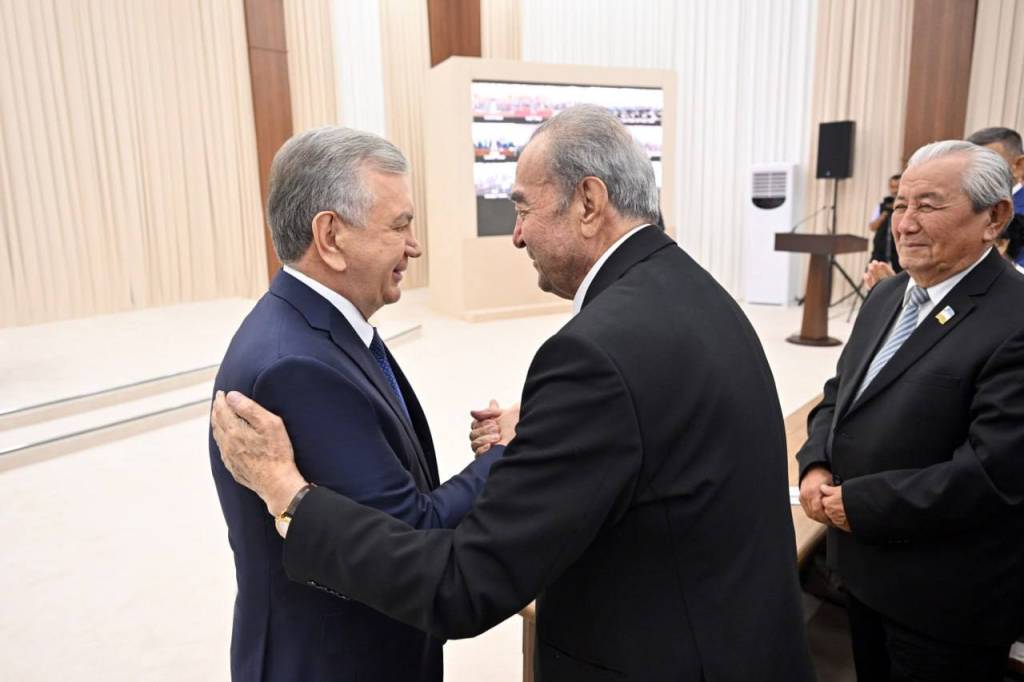
To improve living conditions for the population, 7,700 apartments will be built. This year, the construction of 183 kilometers of water supply and sewage networks is planned, along with eight water facilities.
Youth employment and the organization of leisure activities were also addressed at the meeting. A directive was issued to include young people in the “Youth Business” program and university graduates in the “Step into the Future” program, providing them with support in entrepreneurship and employment.
“As you can see, numerous objectives have been outlined for Kashkadarya. I am confident that this region’s hardworking, sincere, and noble people, who have inherited the courage, resilience, and generosity of their great ancestor Amir Temur, will achieve all the goals set before them. I believe that the people of Kashkadarya will be at the forefront of our reforms”, Shavkat Mirziyoyev stated.
Following the meeting, the hokims of the region and its districts, as well as sector leaders, delivered reports on the issues discussed. An open dialogue was held with entrepreneurs and representatives of the public.
UzA
 Ўзбекча
Ўзбекча English
English Русский
Русский




